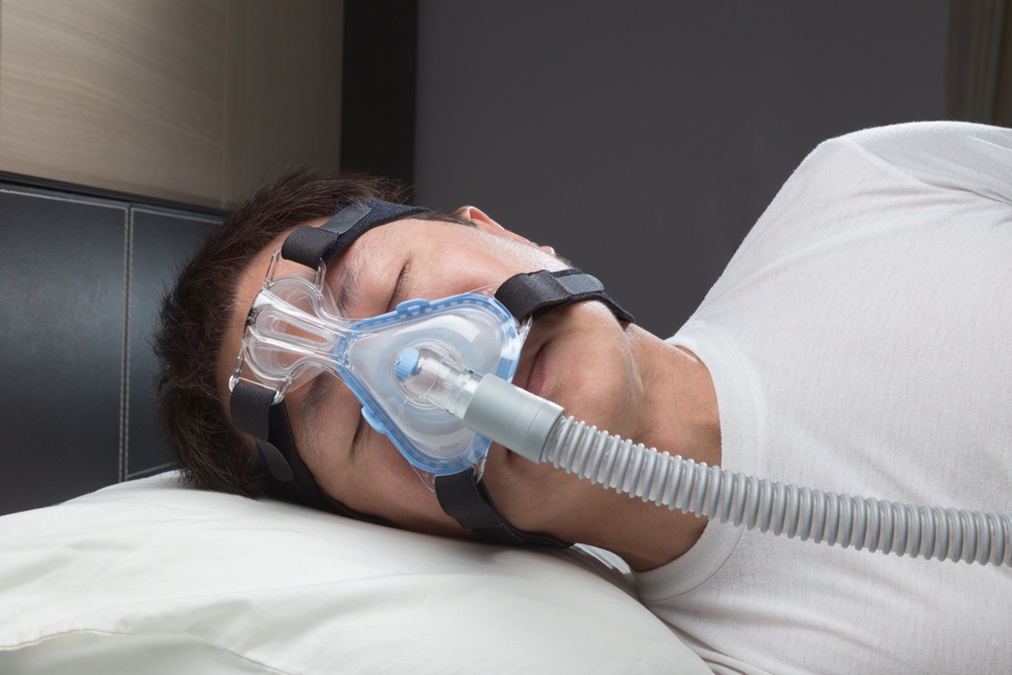 Sleep apnea is a serious condition that has major adverse consequences for your psychological, cognitive, and behavioral functioning.
Sleep apnea is a serious condition that has major adverse consequences for your psychological, cognitive, and behavioral functioning.
The most common treatment for sleep apnea is continuous positive airway pressure masks (CPAP), which almost everyone hates using and over 65% ditch at some point.
So, a new study just published in the Journal of Clinical Sleep Medicine aimed at finding how much difference CPAP masks had on their client’s well-being.
And the surprising results were quite different than the researchers expected.
In this study, 110 sleep apnea sufferers and 31 people without this condition underwent a polysomnographic sleep assessment for several nights as well as psychological, cognitive, and behavioral testing.
Predictably, unlike good sleep breathers, sleep apnea sufferers were fatigued, battled with low mood, had a relatively poor quality of life, and struggled with psychomotor function, working memory, and alertness.
They then treated 88 sleep apnea sufferers with continuous positive airway pressure for three months to check whether this common treatment solved the psychological and cognitive impairments.
Surprisingly, while the treatment did relieve some of the problems, they still performed far below the good sleepers on the above-mentioned tests.
This held even for people who used the airway devices regularly and properly.
The researchers speculated that, since their subjects all suffered from mild to moderate sleep apnea, the relative ineffectiveness of continuous positive airway pressure on neurological functioning at this level of apnea may be responsible for the low adherence to the treatment that medical professionals so often observe in their patients.
That is, people don’t ditch just their mask because it is uncomfortable to sleep with, but because it does not make enough of a difference.
That’s the reason it’s so important to CURE snoring and sleep apnea permanently. Not just treat it with a face mask.

 Overcoming IBD
Overcoming IBD Multiple Sclerosis
Multiple Sclerosis Banishing Bronchitis
Banishing Bronchitis Gum Disease Gone
Gum Disease Gone Overcoming Onychomycosis
Overcoming Onychomycosis Neuropathy No More
Neuropathy No More The Prostate Protocol
The Prostate Protocol Brain Booster
Brain Booster
 Ironbound
Ironbound
 Solution for Shingles
Solution for Shingles
 The Bone Density Solution
The Bone Density Solution
 The Ultimate Healing Protocol
The Ultimate Healing Protocol
 The Parkinson's Protocol
The Parkinson's Protocol
 The Chronic Kidney Disease Solution
The Chronic Kidney Disease Solution
 Overthrowing Anxiety
Overthrowing Anxiety The Fatty Liver Solution
The Fatty Liver Solution The Hypothyroidism Solution
The Hypothyroidism Solution
 The End of Gout
The End of Gout The Blood Pressure Program
The Blood Pressure Program
 The Oxigized Cholesterol Strategy
The Oxigized Cholesterol Strategy
 Stop Snoring And Sleep Apnea Program
Stop Snoring And Sleep Apnea Program
 The Arthritis Strategy
The Arthritis Strategy The Vertigo & Dizziness Program
The Vertigo & Dizziness Program The 3-Step Diabetes Strategy
The 3-Step Diabetes Strategy Hemorrhoids Healing Protocol
Hemorrhoids Healing Protocol The Erectile Dysfunction Master
The Erectile Dysfunction Master Weight Loss Breeze
Weight Loss Breeze The IBS Program
The IBS Program The Insomnia Program
The Insomnia Program The Migraine and Headache Program
The Migraine and Headache Program The Neck Pain Solution
The Neck Pain Solution The Menopause Solution
The Menopause Solution The Ejaculation Master
The Ejaculation Master The TMJ Solution
The TMJ Solution The Acid Reflux Solution
The Acid Reflux Solution The Fibromyalgia Solution
The Fibromyalgia Solution The Psoriasis Strategy
The Psoriasis Strategy